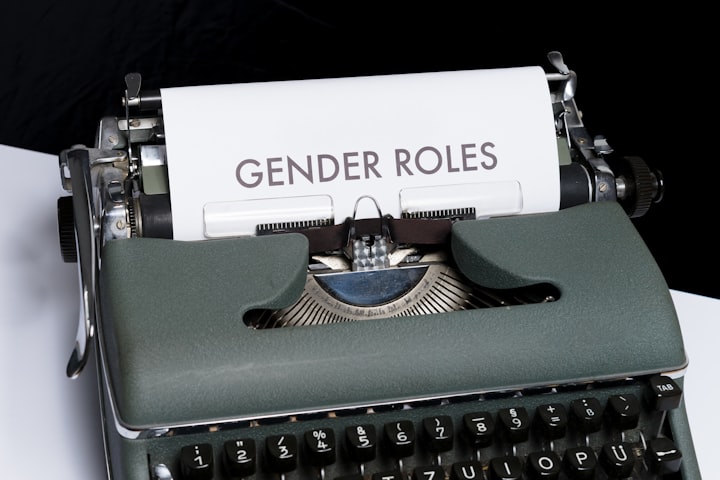Why Gender Is So Hard To Define
What really is gender, and why is there so much difficulty around defining it?

Philosopher and Professor Elizabeth Barnes, in her paper, The Metaphysics of Gender, opens by considering these few individuals.
Deena is a feminine woman who uses the women’s bathroom at the mall, because that’s what she always has used and it has never occurred to her to use another, however, although she doesn’t know it, she was born with XY chromosomes instead of XX chromosomes women have.
Ama is genderqueer. Biologically, she is female, but she identifies as neither a man nor a woman, and people are often confused about what gender she is. Ama generally uses the women’s bathroom because its easiest for her needs, and also to avoid getting harassed.
Ben is a trans male. While he has some anatomically female characteristics, he has been on testosterone supplements for years now, and people identify him as a regular man when he’s out and about. However, his country recently passed a law that prevents him from using the men’s bathroom, but he’s yelled at and kicked out whenever he tries to use the women’s one because he appears male.
Chi-ah is another woman, and typically wears men’s clothing. She is often confused for being male, especially when she goes out with her wife. She has also always used the women’s bathroom, because she always identified as a woman.
People often disagree about which of Deena, Ben, and Chi-ah are women, and more people disagree about which of these individuals belong in women-only spaces like women’s bathrooms and the like.
So what does it actually mean to be a woman or a man or genderqueer or non-binary or others? Is it about how you think of yourself? or is it more so about how others perceive you? We clearly see that it isn’t so easy to classify people into genders as one might think.
And how do other people recognize you as your gender? Do people recognize you as your gender because you are that gender or are you that gender because people recognize you as it?
Sex vs Gender
Let’s first explore the intricacies and relationships between your sex and gender.
To begin with, though, what is your sex? Your biological sex is determined by a range of special anatomical features — though even these are not exact classifications and vary from person to person.
Some of these include things like chromosomes as mentioned earlier, hormonal levels such as your overall balance of testosterone, estrogen, and others. It also includes reproductive organs and other prominent anatomical and physical features such as a more visible Adam’s apple in males, body hair patterns and others.
According to these characteristics, a typical male would have XY chromosomes, testes, and higher levels of testosterone, while a typical female would have XX chromosomes, ovaries, and higher levels of estrogen and progesterone.
An important note I must make here though is that these characteristics can all be combined in different ways, so there is a lot of variation from person to person.
One way that it may be possible to classify individuals on their gender is through their chromosomes. For those of you who have studied genetics in some form, you will know that, within your genes, you have a pair of chromosomes. In females, this pair is generally XX, while it’s usually an XY pair in males.
It seems like a pretty straightforward conclusion then, that if you have XX chromosomes, your gender is that of a woman and if you have XY chromosomes then you are male, but that just isn’t always the case.
So now we see that these sex-related characteristics are important to our bodies, but do they determine our gender? Once we take a closer look, it’s pretty obvious that they don’t.
To illustrate this point, let’s consider Deena from the earlier examples. Deena is a feminine woman who uses the women’s bathroom at the mall, because that’s what she always has used and it has never occurred to her to use another, however, although she doesn’t know it, she was born with XY chromosomes instead of XX chromosomes women have.
Deena here was born with a condition known as androgen insensitivity syndrome (AIS). People with this condition have male XY chromosomes, but they have female physical attributes, so they always appear as women. As a result, they are physically women with the genetic makeup of men.
Elizabeth Barnes’ points out that this case clearly shows then that gender is not always dictated by our sex. Someone with AIS will always be treated as a woman and experience all the social norms and expectations of women. Many also often strongly identify as women too, regardless of their biological complexity.
Cultural Norms
Besides biology, though, there are a whole set of gender norms in our culture that we place upon what it means to be a woman or a man or any other gender, and these often go far beyond basic anatomy. There are a lot of ways that your anatomy and physical characteristics can be. You could be 5'3 or 6' and anything in between, you could have brown or gray or blue or green eyes, you could have straight or curly hair and so on. Each of these characteristics is influenced by your genes, but not all of these are socially significant.
Take your eye colour for example. You could have brown eyes, or gray eyes, or blue or green eyes, and while these physical characteristics look different, they don’t have much social bearing today. We don’t look at someone with brown eyes and assume they will have similar features and act in a similar way to everyone else with brown eyes.
With gender, on the other hand, our characteristics are very socially significant.
If you are perceived as a woman, then people will make some rather significant assumptions about what you are like as a person and ascribe certain expectations to you. If you are perceived as a woman, then you’re expected to be more gentle and nurturing, or more emotional and less rational. You’re expected to have certain skills like being able to cook well or being good at working with children.
If you’re perceived as a man, on the other hand, you’re expected to be strong, aggressive, and bold and generally the breadwinner of the family. You’re also expected to be less expressive about your emotions, and be better at things that require physical labour.
No matter what your gender is, if you are perceived by it in our society there are a set of societal norms and expectations that are placed upon you, but what we see is that these expectations are not very linked to your biology at all.
Culture and Biology
Culture changes drastically from country to country and throughout time, and things that may be considered masculine at some point may later be considered feminine, and things are now feminine might later become masculine.
People seem to think that men and women are genetically very different, that men and women are somehow ‘specialized’ for different things and different tasks. And while that is true from a reproductive standpoint, it isn’t true at all in most other aspects.
Studies in biology and genetics clearly show that men and women are actually very similar genetically, with miniscule genetic differences that lead to us being perceived differently as men or women. Studies do show that while there are genetic differences that make men and women appear or act differently and have different behaviours, these differences are miniscule and have a lot of overlap between men and women.
Take height, for example. It’s common knowledge that, on average, men are taller than women, but the differences here aren’t really that dramatic — it isn’t like the height differences between adults and children — and there are plenty of individual females who are taller than males, so there clearly is a lot of overlap and range with this characteristic.
And yes, there are certain differences genetically that may change behaviour to some degree, like a higher amount of testosterone in men for example, but again, these changes are not big enough to say that men and women are so genetically different.
We clearly see now that gender isn’t what we assume it to be at first glance. It isn’t just your sex, but it also isn’t a set of cultural norms that always changes, because gender is a real thing that impacts people. So what is gender?
Well, that question is one I will be exploring in future articles.
If you would like to explore this topic in audio form rather than through these posts, check out the Philosophy Over Tea podcast.
This article was previously published on Medium






Comments
There are no comments for this story
Be the first to respond and start the conversation.